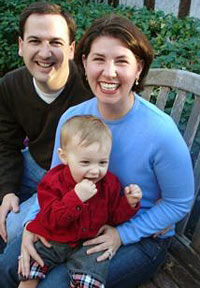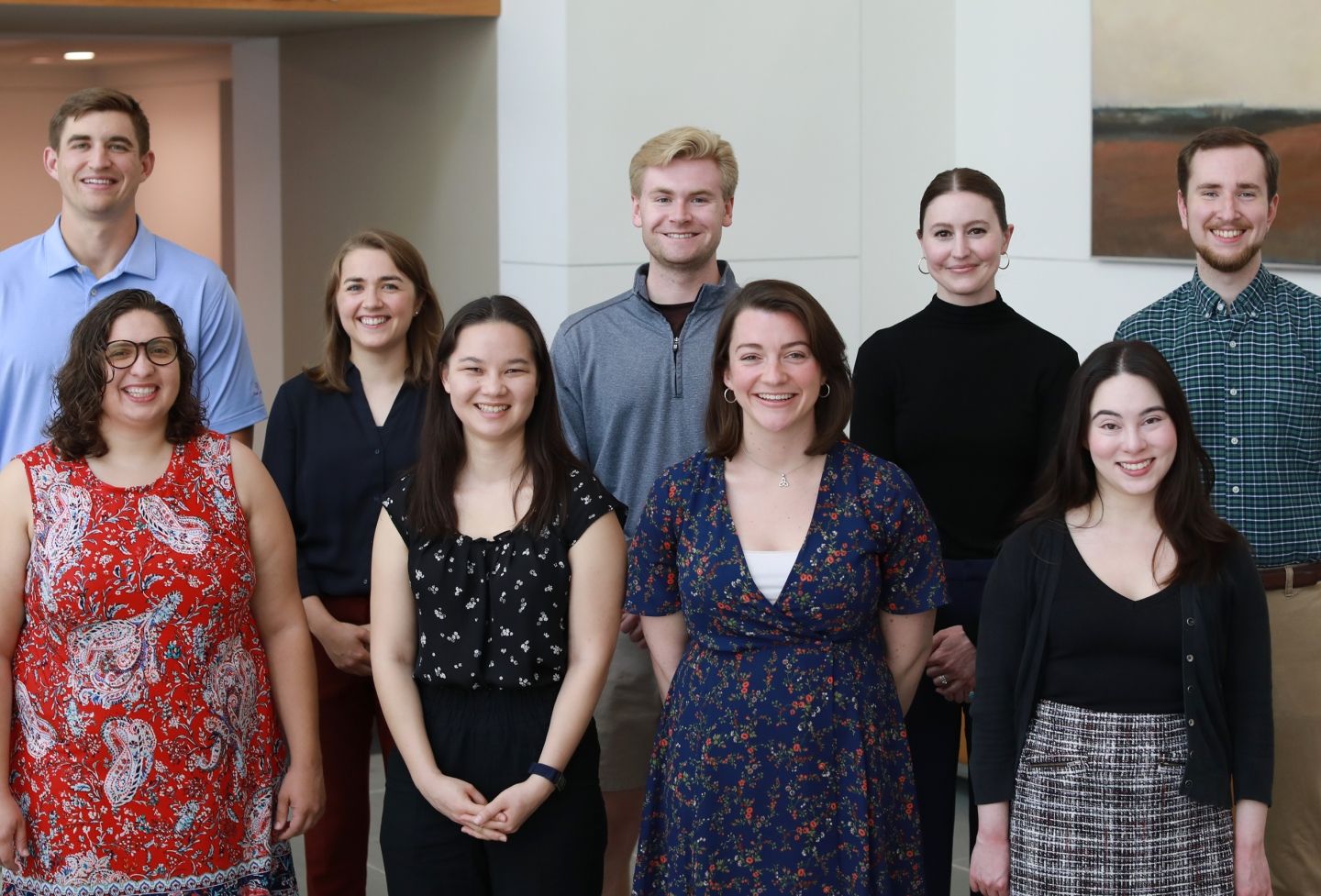First Powell Fellow Still Fighting for Children's Rights

Four years after becoming the Law School's first Powell Fellow, Kit Ballenger '02 continues to fulfill the fellowship's mission of providing legal services for those in need.
Thanks to the fellowship, Ballenger had the chance to work two years following graduation in the child advocacy unit of the Maryland Legal Aid Bureau (MDLAB), and the Law School paid her salary. When her time was up, she accepted an offer to remain on staff.
And she loves it.
By no stretch of the imagination is child advocacy an easy job. Ballenger said her cases range from "really horrific incest sex abuse cases, to really developmentally delayed children who we've found homes for, to really fascinating immigration situations, to neglect cases-[there are] so many teenagers whose parents just finally throw in the towel and will not take them home again."
Dealing daily with such troubling circumstances "is a job that takes an emotional commitment," Ballenger said. "You have to constantly change to absorb all the new clients and all the new cases."
But Ballenger has made that commitment. Constantly on the road, she makes trips to see each of her clients-currently numbering 96- at least twice a year. Sometimes the visit count goes up to 10.
Such close involvement means that Ballenger and her colleagues know their clients well. In fact, Ballenger could tell you off the top of her head where each child lives, as well as a few details about his or her life.
"There are kids I've had for four years now," Ballenger said. "So I've seen them graduate from high school or get a driver's license. I've seen kids through enough transitions that I think they feel comfortable around me."
Another reason for the kids' comfort, Ballenger suggested, may be the nature of their relationship with her.
"Because of attorney-client privilege, they feel more comfortable talking with me about issues they might not raise with someone else, or they might raise [issues] with me before they raise them with someone else," she said.
When the children talk, Ballenger listens. One of the principles upheld by her office is to argue in favor of what the client wants, no matter what the attorney's opinion may be.
This way, Ballenger assumes the "traditional counselor role" of the attorney: Instead of instructing her clients on what to do, she explains their options. Provided they have the "rational ability" to make a decision, it is up to them to choose from among those options.
Ballenger said she "feels strongly about that standard of representation." So strongly, in fact, that part of the reason she chose to work in Maryland is its status as one the few states that follow the American Bar Association's recommendations on representing clients' wishes.
"I'm meeting this kid because someone has in some way hurt them," Ballenger said. "They have not had someone looking out for them and listening to what they want. It makes them feel better to know they've had their say."
She finds this practice to be emotionally healthy and "incredibly empowering" for her clients, particularly considering the turmoil they have been through.
"At least being able to put out what they want has got to be rewarding for them," she said. "Even if the county disagrees, sometimes we win."
Ballenger credits the Powell Fellowship for allowing her do work she is so passionate about. Without its assistance, MDLAB probably would not have been able to hire her immediately after graduation.
It also brought her into an environment that is both professionally and personally fulfilling.
"Professionally, it was a wonderful environment to be trained," Ballenger said. "There is a very polished process. Thanks to the Powell, I've been matched with an organization that takes training lawyers very seriously."
Ballenger saw the true worth of her training when she had to appear in court the day after being sworn into the bar.
"It was terrifying," she said. "But I also felt confident at that point because I had been trained so thoroughly."
On a personal level, the unit in which Ballenger works-which happens to be made up entirely of women-has also been "phenomenal."
"We are very, very close," Ballenger said. "As a result of the work you're doing, you need the support of your co-workers because almost every case that comes in the door is novel in some way."
In addition to supporting each other emotionally and drawing on each other's experiences to best benefit the clients, co-workers help each other in the logistical side of the work. If one lawyer is overloaded with cases one day, for example, she will never have trouble finding someone to cover for her.
Working in child advocacy is "something you have to appreciate from within because they're still kids," Ballenger said. "There's very little gratitude in legal services in general. And that's where it's important to have a great group of co-workers. They're the ones who have to appreciate each other."
Regardless of where the appreciation comes from, Ballenger said she is very happy with what she does.
"It's such a privilege to have an impact on these children's lives," Ballenger said. "I've described it before as being existential in that it's thoroughly exhausting work. It impacts not just the child's life but all the people they go on to be in contact with."
This article is second in a series on what the Powell Fellows are doing now.
Founded in 1819, the University of Virginia School of Law is the second-oldest continuously operating law school in the nation. Consistently ranked among the top law schools, Virginia is a world-renowned training ground for distinguished lawyers and public servants, instilling in them a commitment to leadership, integrity and community service.


